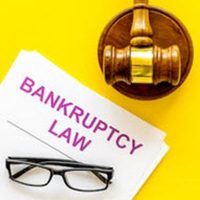Bankruptcy Exemptions

If you are thinking about filing for personal bankruptcy, you may be especially worried about having to part with your possessions. It’s a legitimate concern—since that is precisely what happens in many bankruptcies. Understanding the rules and laws related to exemptions is important before you take the plunge into bankruptcy.
Exempt and Non-Exempt Property
Certain exemptions are allowed whether a debtor files for Chapter 7 or Chapter 13. Nonexempt property, however, is sold in order to make distributions to creditors in Chapter 7. When it comes to Chapter 13, debtors are allowed to keep everything, although they are required to pay the value of the equity of the property in a repayment plan or with disposable income.
Exemption Rules
Anyone who has lived in Florida for at least 180 days may file for bankruptcy, but in order to get Florida’s exemptions, you must have lived in the Sunshine State for at least 730 days. Otherwise, you get the exemptions allowed by your previous state.
The Homestead Exemption
One exceedingly generous exemption allowed in Florida is called the Homestead Exemption. This allows debtors to exempt any amount of equity in property or a home that they’ve owned for 1,215 days or more that is either:
- Half an acre in a municipality, or
- 160 acres outside a municipality.
The Wildcard Exemption
Up to $4,000 of personal property can be exempted if the debtor does or cannot take advantage of the Homestead Exemption.
Personal Property
Items outside of real estate may be exempted within strict limits:
- $1,000 in personal property such as art, electronics, and furniture;
- All funds in health saving accounts, education savings accounts, and hurricane savings accounts;
- Any health aids that are prescribed;
- All tax refunds and tax credits;
- Certain partnership properties;
- Funeral costs.
Motor Vehicle Exemption
Individuals can exempt as much as $1,000 for equity in a motor vehicle, although the amount is higher for couples filing jointly.
Wage Exemptions
Up to $750 weekly for heads of household are exempt, or the greater of three-quarters of earnings or 30 times the federal minimum wage. Individuals other than the head of household are allowed to exempt 75 percent of earnings or 30 times the amount of the federal minimum wage. Debtors may exempt the greater amount in each scenario.
Pensions
Pensions/retirement benefits for teachers, firefighters, public employees, County and State officers, and municipal police are all exempt. Additionally, tax-exempt retirement accounts such as 401(k)s, 403(b)s, and ROTH IRA’s are exempt up to $1,512,350.
Public Benefits
Benefits from the VA, Social Security, Worker’s Compensation, disability benefits, fraternal benefit society benefits, and unemployment are exempt, as well as compensation from a crime victim compensation fund (unless one wishes to discharge debt related to treatment for an injury related to the crime).
Additional Exemptions
Alimony and child support are exempt, as are proceeds from a life insurance policy, an annuity contract, and the cash surrender value of a life insurance policy.
The Legal Guide You Need
The experienced Miami bankruptcy attorneys at The Law Office of Julia Kefalinos can help you navigate through all of your bankruptcy issues. To discuss your situation, schedule a confidential consultation in our Miami office today.
Source:
flsenate.gov/laws/constitution#A10S04

